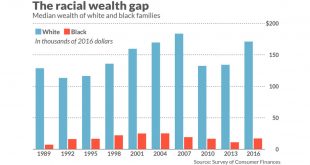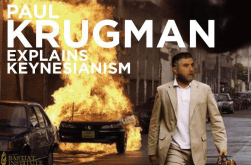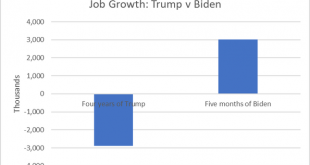from Gerald Holtham (originally a comment) The biggest problem, it seems to me, is not the tools that economists use but the failure to start from real, concrete questions and issues in the real world. Someone builds a model of a real situation. It may be useful or not but if it is ingenious it gets published. People then play tunes on the model; they seek to “generalise” it in various ways. We embark on a process of theoretical development for its own sake, increasingly divorced from...
Read More »Is emerging Asia in retreat?
from C. P Chandrasekhar and Jayati Ghosh International observers still view Asia and particularly East Asia as the most dynamic economic region in the world, a perception that has been even more entrenched over the period of the pandemic. Certainly, if aggregate GDP growth rates in real terms (as shown in Figure 1) are anything to go by, there is no doubt that the region of East Asia has been growing faster than the world as a whole, and has even managed to maintain positive growth in the...
Read More »Deductivism — the original sin in mainstream economics
from Lars Syll Mathematics, especially through the work of David Hilbert, became increasingly conceived as a practice concerned with formulating systems comprising sets of axioms and their deductive consequences, with these systems in effect taking on a life of their own … The emergence of the axiomatic method removed at a stroke various hitherto insurmountable constraints facing those who would mathematise the discipline of economics … In particular it was no longer regarded as...
Read More »Weekend Read – Hockey Stick or Growth Illusion?
from Asad Zaman Most economists are committed to Friedman’s methodology which advocates a nominalist philosophy of science. Theories do not aim to discover hidden real structures which explain the observations. Instead, they aim to “save the appearances”: provide a good match to the observations. Although a small minority of voices has advocated a realist methodology – Bhaskar Roy, Peter Manicas, Tony Lawson, and some others – the vast majority remains unconvinced. One important reason...
Read More »Paul Krugman’s gadget version of Keynesianism
from Lars Syll Paul Krugman has often been criticized by people like yours truly for getting things pretty wrong on the economics of John Maynard Keynes. When Krugman has responded to the critique, by himself rather gratuitously portrayed as about “What Keynes Really Meant,” the overall conclusion is — “Krugman Doesn’t Care.” Responding to a post up here on this blog, Krugman writes: Surely we don’t want to do economics via textual analysis of the masters. The questions one should ask...
Read More »‘Bidenomics’: Evolution or Revolution?
Does President Biden’s economic agenda represent a new progressive era in the U.S.? Goldman Sachs Research’s Allison Nathan discusses how big of a shift in U.S. economic policy Bidenomics truly represents and the implications for the economy with David Brady, professor at the Stanford Graduate School of Business; Jason Furman, professor at the Harvard Kennedy School; and Dean Baker, co-founder of the Center for Economic Policy Research. For more episodes of “Exchanges at...
Read More »Job growth under Biden and Trump
from Dean Baker Yes, it is that time of month again. As I always say, this sort of comparison is silly, since there are so many factors determining job growth that have nothing to do with the person in the White House. But, we all know that Trump and the Republicans would be touting this to the sky if the shoe were on the other foot. So, here’s the latest, the economy has created more than 3 million jobs in the first five months of the Biden administration. It lost almost 2.9 million...
Read More »The G7’s tax reform could entrench global inequality
from Jayati Ghosh The tax proposal decided at the G7 Finance Ministers’ meeting last weekend has been hailed as ‘historic’ and ‘transformative’. But in its present form, it is, unfortunately, neither. Major changes can and should be made — at least by the G20 where this will next be considered — if there is to be any serious global tax reform. The proposal is based on the recognition that the international tax architecture, designed for an earlier and very different era, contains...
Read More »Economics — a severe case of misplaced idolatry of ‘rigour’
from Lars Syll There is something about the way macroeconomists construct their models nowadays that obviously doesn’t sit right. Empirical evidence — still — only plays a minor role in mainstream economics, where models largely function as a substitute for empirical evidence. One might have hoped that humbled by the manifest failure of its theoretical pretences during the latest economic-financial crises, the one-sided, almost religious, insistence on axiomatic-deductivist modeling as...
Read More »Trains and population density: U.S. and Europe
from Dean Baker There are lots of silly comments that pass for great wisdom in elite circles. Steve Rattner gave us one of my favorites in his NYT column warning President Biden against putting too much money into reviving our system of train travel. Rattner tells us: “America is not Europe, with its dense population centers clustered reasonably close together.” This is of course true, but in a totally trivial sense. The density of our population per mile of land is much lower than in...
Read More » Real-World Economics Review
Real-World Economics Review







